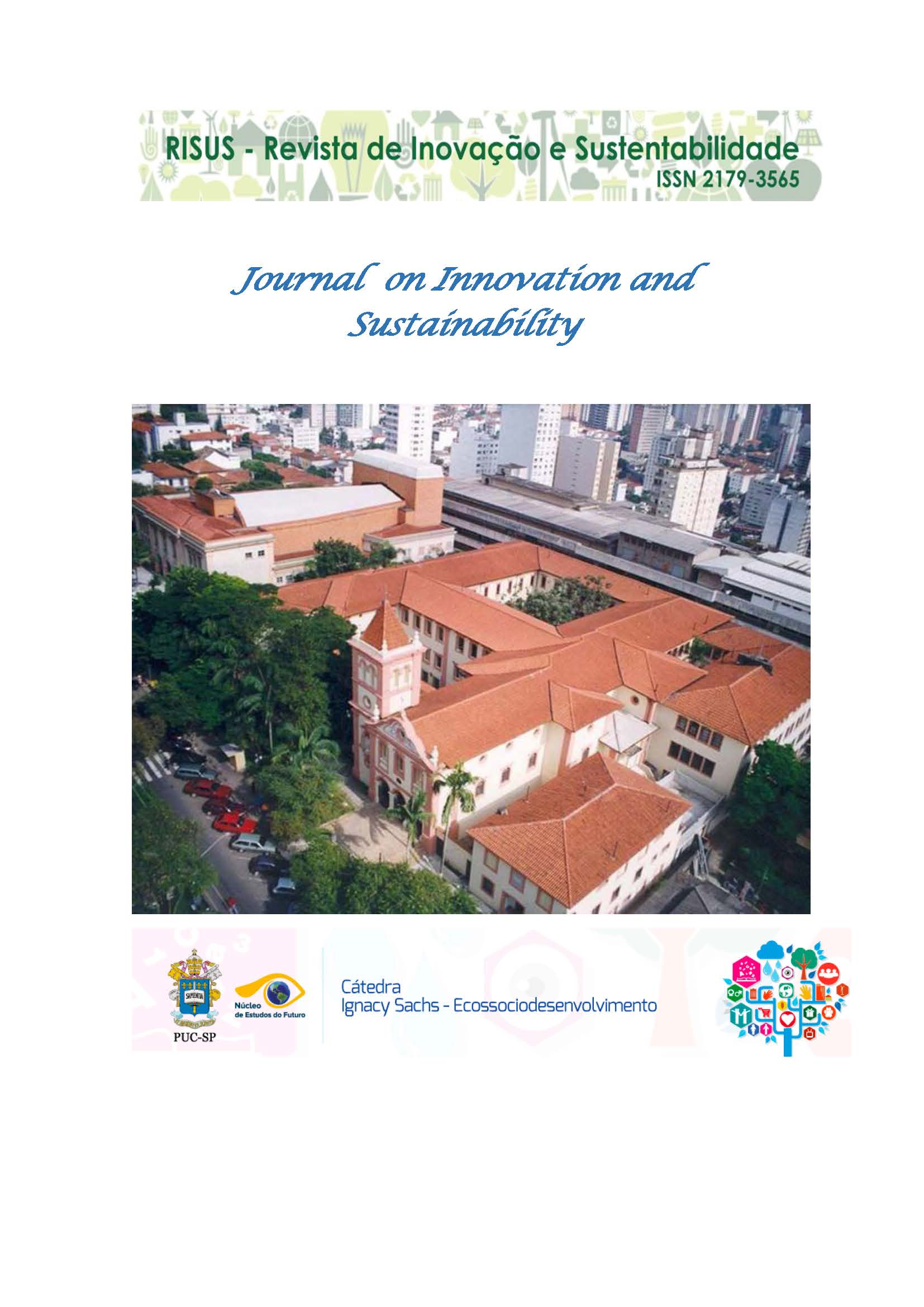The functions of the orchestrator in innovation ecosystems
DOI:
https://doi.org/10.23925/2179-3565.2022v13i2p4-13Keywords:
innovation ecosystems, orchestration, orchestratorAbstract
The role of orchestration is critical to the success of innovation ecosystems. Understanding the functions of the orchestrator makes it possible to improve strategic decision making and construct roadmaps for the ecosystem evolution. The article aim is to analyze the orchestrator actor roles in innovation ecosystems. For this, an integrative literature review in the Scopus databases; Web of Science, Science Direct and Scielo. As a result, was listed and discussed 24 functions performed by the orchestrators of innovation ecosystems. In general, it was established that the orchestrator must understand the ecosystem, manage it, ensure an adequate exchange environment, monitor and continuously renew the ecosystem. Establishing the same vision and leadership are also important aspects.
References
Adner, R. Match your innovation strategy to your innovation ecosystem. Harvard Business Review, v. 84, n. 4, p. 98, 2006.
Botelho, L. L. R.; Cunha, C. C.; Macedo, M. O método da revisão integrativa nos estudos organizacionais. Gestão e sociedade, v. 5, n.11, p.121-136, 2011.
Gastaldi, L.; Corso, M. Academics as Orchestrators of Innovation Ecosystems: The Role of Knowledge Management. International Journal of Innovation and Technology Management, v. 13, n. 5, 2016.
Grandstrand, O.; Holgersson, M. Innovation ecosystems: A conceptual review and a new definition. Technovation, v. 90-91, 2020.
Haines, T. Developing a startup and innovation ecosystem in regional Australia. Technology Innovation Management Review, v. 6, n. 6, p. 24-32, 2016.
Iansiti, M.; Levien, R. Strategy as ecology. Harvard Business Review, v. 82, n. 3, p. 68-78, 126, 2004.
Jackson, D. J. What is an Innovation Ecosystem?. National Science Foundation, Arlington, VA, 2011.
Jucevicius, G.; Juceviciene, R.; Gaidelys, V.; Kalman, A. The emerging innovation ecosystems and “Valley of death”: Towards the combination of entrepreneurial and institutional approaches. Engineering Economics, v.27, n,4, p. 430-438, 2016.
Leten, B.; Vanhaverbeke, W.; Roijakkers, N.; Clerix, A.; Van Helleputte, J. IP Models to Orchestrate Innovation Ecosystems: IMEC, a Public Research Institute in Nano-Electronics. California Management Review, v. 55, n. 4, p. 51–64, 2013.
Markkula, M.; Kune, H. Making Smart Regions Smarter: Smart Specialization and the Role of Universities in Regional Innovation Ecosystems. Technology Innovation Management Review, v. 5, n. 10, p. 7–15, 2015.
Oksanen, K.; Hautamaki, A. Transforming regions into innovation ecosystems: A model for renewing local industrial structures. Innovation Journal, v. 19, n. 2, 2014.
Prokopenko, O.; Eremenko, Y.; Omelyanenko, V. Role of international factor in innovation ecosystem formation. Econ. Ann, v. 21, p. 3-4, 2014.
Rajahonka, M.; Pienonen, T.; Kuusisto, R.; Handelberg, J. Orchestrators of Innovation-Driven Regional Development: Experiences from the INNOFOKUS Project and Change2020 Programme. Technology Innovation Management Review, v.5, n.10, p. 52–62, 2015.
Ritala, P.; Almpanopolou, A. In defense of ‘eco’ in innovation ecosystem. Technovation, v. 60, p. 39-42, 2017.
Romano, A.; Passiante, G.; Vecchio, P. Del; SECUNDO, G. The innovation ecosystem as booster for the innovative entrepreneurship in the smart specialization strategy. International Journal of Knowledge-Based Development, v. 5, n. 3, p. 271, 2014.
Russell, M. G.; Smorodinskaya, N. V. Leveraging complexity for ecosystemic innovation. Technological Forecasting and Social Change, [s. l.], v. 136, p. 114–131, 2018.
Russo-Spena, T.; Tregua, M.; Bifulco, F. Searching through the jungle of innovation conceptualizations: System, network and ecosystem perspectives, Journal of Service Theory and Practice, 2017.
Russo-Spena, T.; Tregua, M.; Bifulco, F. Knowledge Practices for an Emerging Innovation Ecosystem. International Journal of Innovation and Technology Management, v. 13, n. 05, 2016.
Schaeffer, P.; Fisher, B.; Queiros, S. Beyond Education: The Role of Research Universities in Innovation Ecosystems. Foresight and STI Governance, v. 12, n. 2, p. 50–61, 2018
Spinosa, L. M.; Krama, M. R.; Hardt, C. Desenvolvimento urbano baseado em conhecimento e ecossistemas de inovação urbanos: uma análise em quatro cidades brasileiras. EURE (Santiago), v. 44, n. 131, p. 193–214, 2018.
Still, K.; Huhtamaki, J.; Russell, M. G.; Rubens, N. Insights for orchestrating innovation ecosystems: the case of EIT ICT Labs and data-driven network visualizations. International Journal of Technology Management, v. 66, n. 2-3, p. 243, 2014.
Su, Y. S.; Zheng, Z. X.; Chen, J. A multi-platform collaboration innovation ecosystem: the case of China. Management Decision, v. 56, n. 1, p. 125–142, 2018.
Valkokaria, K. Business, Innovation, and Knowledge Ecosystems: How They Differ and How to Survive and Thrive within Them. Technology Innovation Management Review, [s. l.], p. 17–24, 2015.
Viitanen, J. Profiling Regional Innovation Ecosystems as Functional Collaborative Systems: The Case of Cambridge. Technology Innovation Management Review, v. 6, n. 12, p. 6–25, 2016.
Walrave, B.; Talmar, M.; Podoynitsyna, K. S.; Romme, A. G. L.; Verbong, G. P. J. A multi-level perspective on innovation ecosystems for path-breaking innovation. Technological Forecasting and Social Change, v. 136, p. 103–113, 2018.
Woronowics, T.; Boronowsky, M.; Wewezer, D.; Mitasiunas, A.; Seidel, K.; Cotera, I. R. Towards a Regional Innovation Strategies Modelling. Procedia Computer Science, v. 104, p. 227–234, 2017.

Downloads
Published
Issue
Section
License
This Journal is licensed under a Creative Commons Attribution-Non Commercial-No Derivers 4.0 International license.
1.The author (s) authorize the publication of the article in the journal;
2.The author (s) warrant that the contribution is original and unpublished and is not in the process of being evaluated in other journal (s);
3. The journal is not responsible for the opinions, ideas and concepts emitted in the texts, as they are the sole responsibility of its author (s);
4. The editors are entitled to make textual adjustments and to adapt the articles to the standards of publication.

